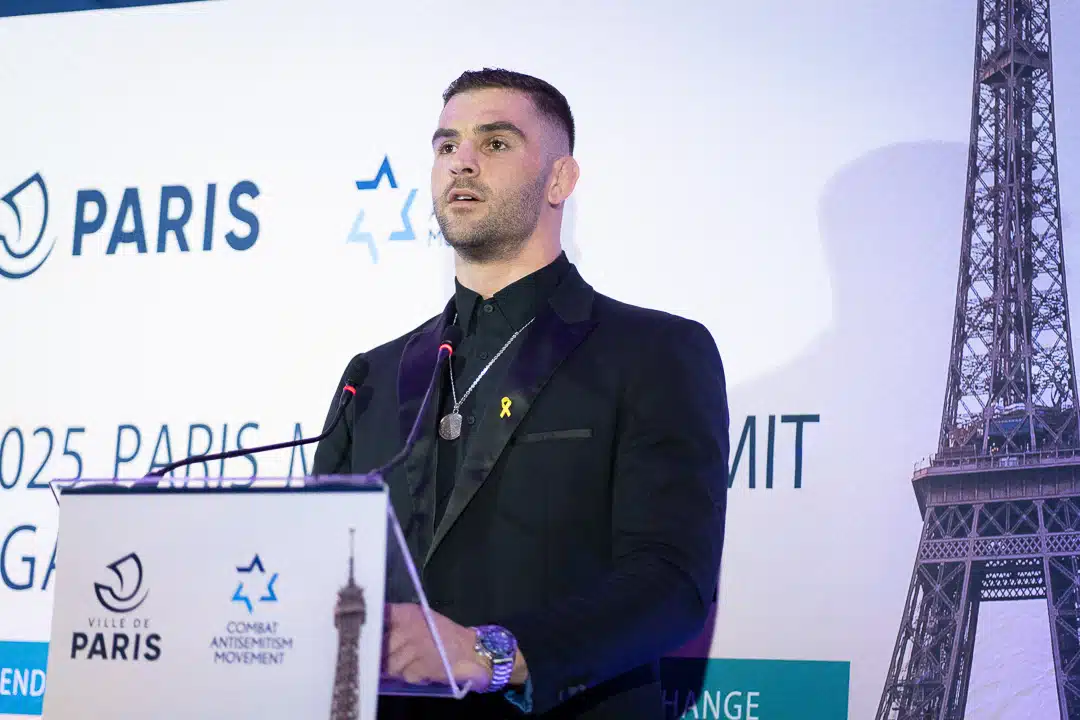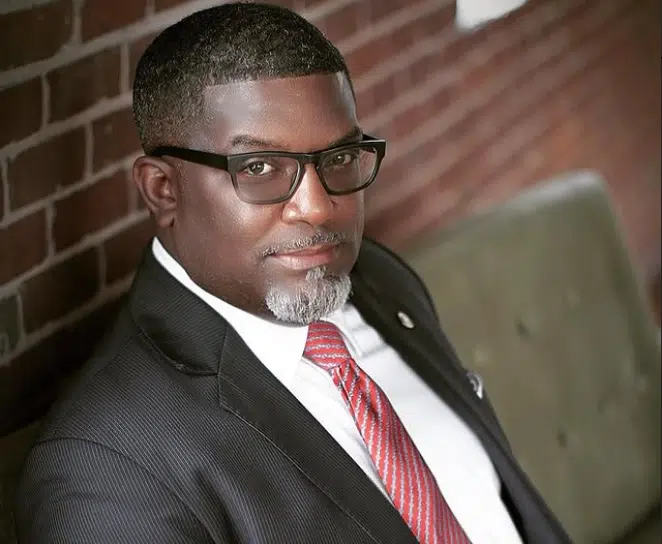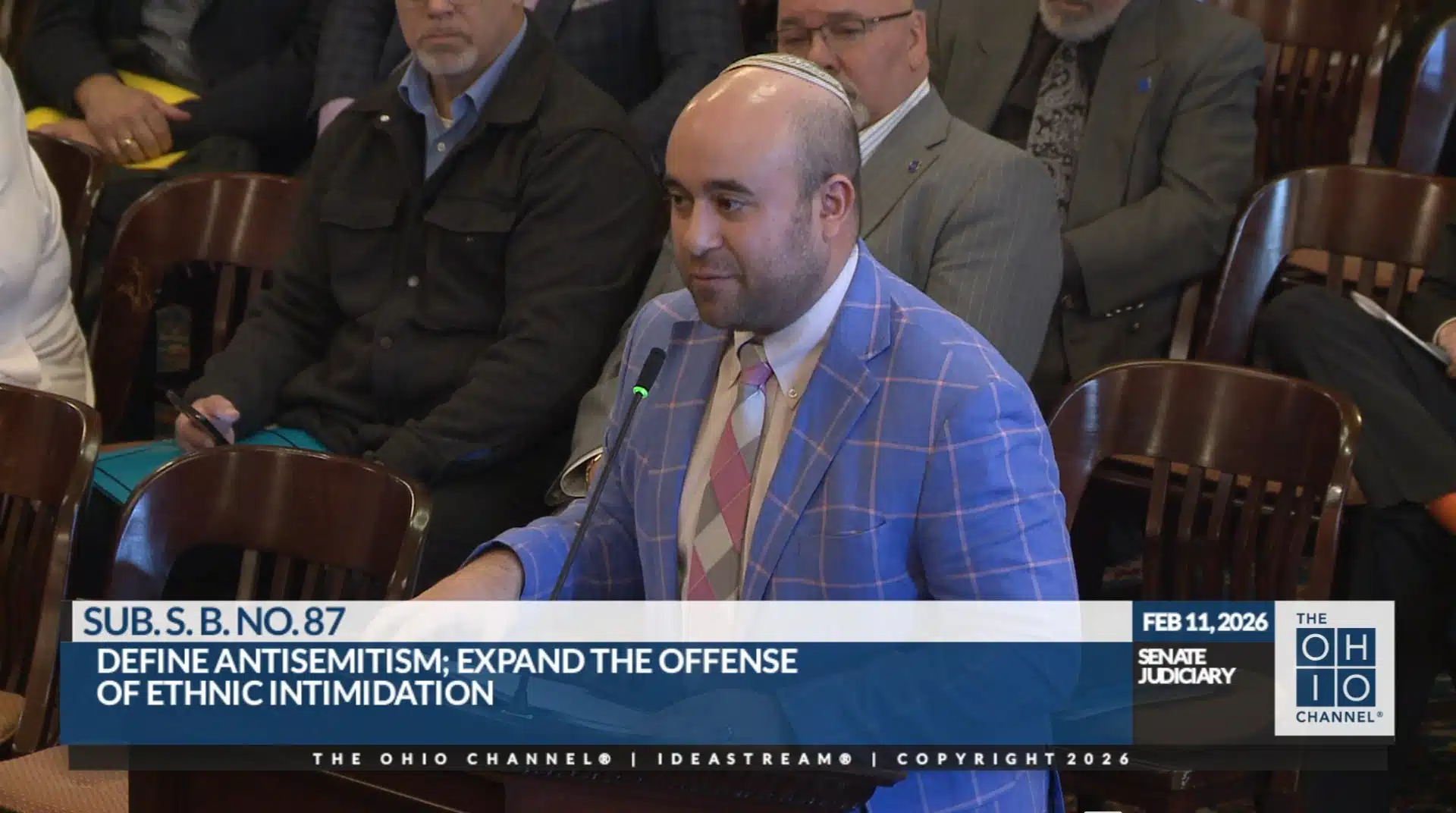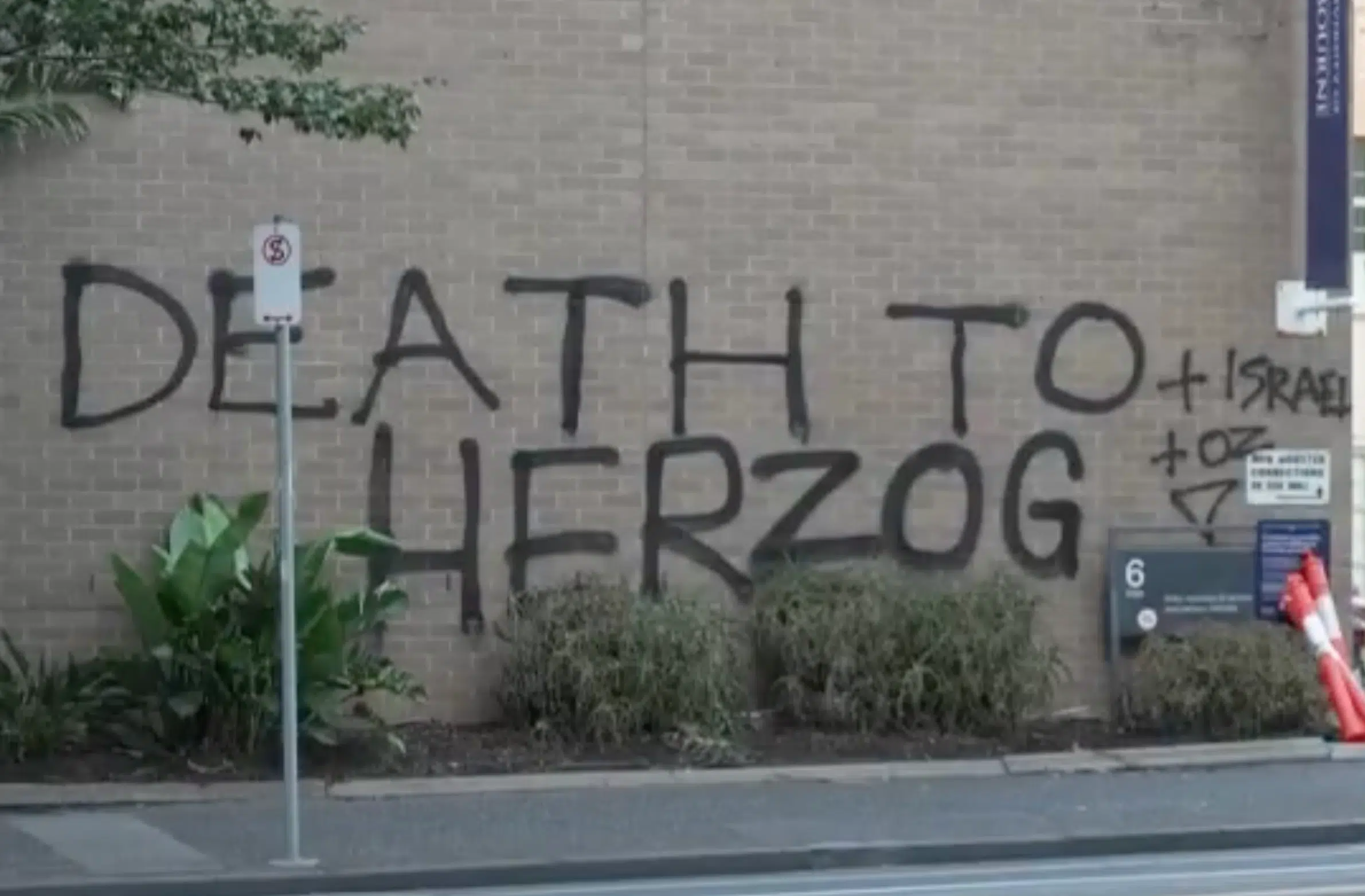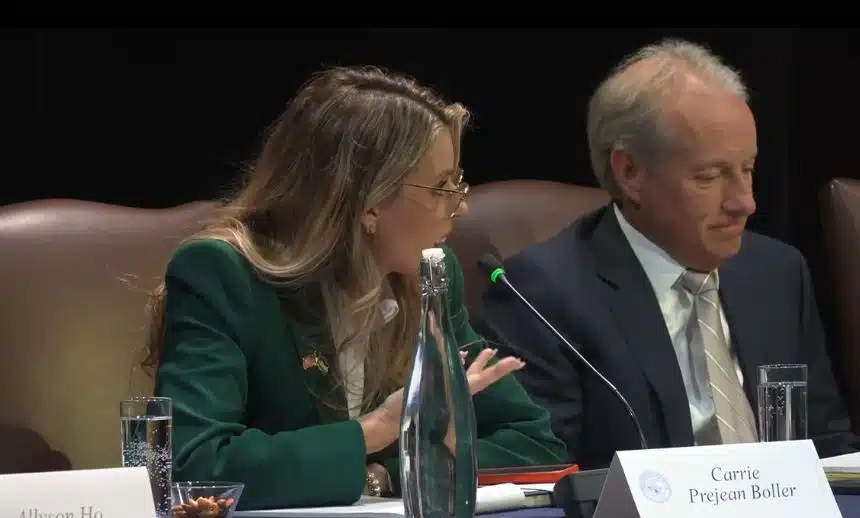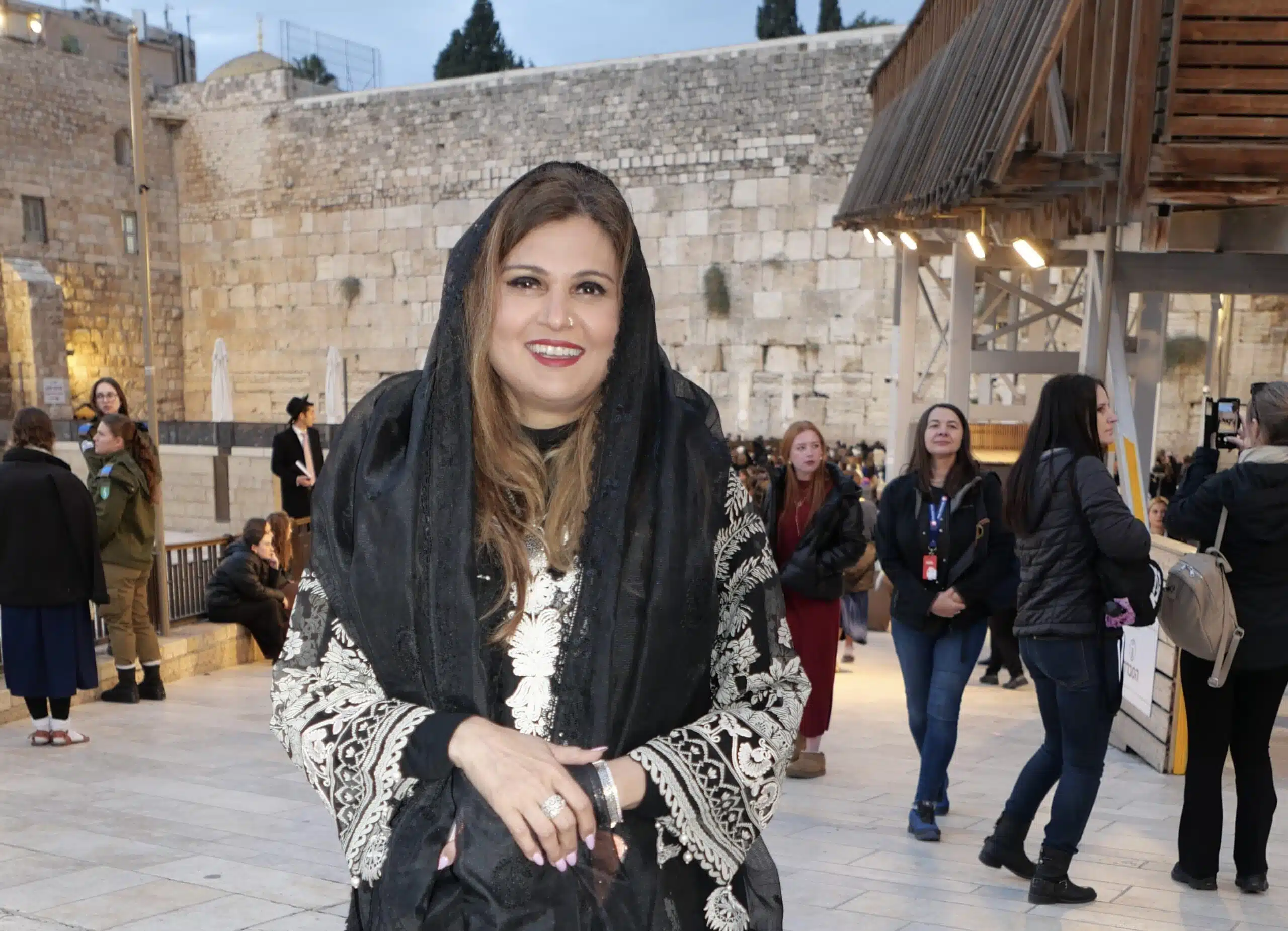

Rise of Trivialization Trend Shows ‘Desperate Need for Further Holocaust Education,’ Claims Conference Says
The worldwide surge of Holocaust trivialization during the Covid-19 pandemic has underscored the urgency of addressing and combating this dangerous phenomenon.
The rising trend, which crisscrosses the ideological spectrum, has been mainly fueled by rancorous public discourse over health measures enacted by governments to combat the pandemic. Since the start of 2020, for example, more than 60 million online engagements have tied the Holocaust and the pandemic together.
Ahead of International Holocaust Remembrance Day last month, the Combat Antisemitism Movement (CAM) launched the “#CantBeCompared” campaign to draw attention to the problem and issued a global “Call to Action” urging governments, legislators, social media companies, and the public at large to treat Holocaust trivialization as a form of antisemitic hate speech and take concrete steps against it.
This week, CAM spoke with the Conference on Jewish Material Claims Against Germany (Claims Conference), a nonprofit organization that secures material compensation for Holocaust survivors around the world, about this important issue.
The transcript of the conversation with Claims Conference President Gideon Taylor and Director of Policy Affairs Shari Reig follows:


Holocaust trivialization is not a new phenomenon, yet it has risen dramatically in the past two years during the COVID-19 pandemic. Why do you think this is?
“Rhetoric trivializing the Holocaust is not new. In fact, a term was coined for it several decades ago: ‘Godwin’s law‘ — the, somewhat tongue-in-cheek, observation that any online argument eventually will deteriorate to a casual discussion of Nazis. What is new is a global pandemic, which has impacted nearly every person in the world. The last two years have been incredibly difficult. There are those who reach for Holocaust comparisons in the midst of the Covid-19 pandemic because the Holocaust is the most terrible event they can think of. Wherever someone is on the political or rhetorical spectrum, however, there is nothing about the pandemic that can even remotely be compared to the Holocaust — when Jewish men, women, and children across Europe were marginalized, ostracized, stripped of their homes and livelihoods, forced into hiding, herded into ghettos and concentration camps, enslaved, and six million of them were ultimately murdered. For public health measures to be referenced in the same breath as the Holocaust only demonstrates the desperate need for further Holocaust education.”
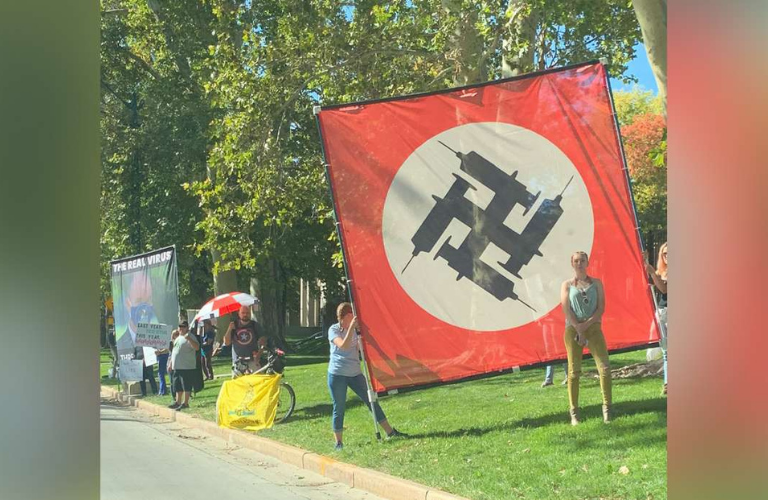
“What is also new is the online world, which has made it vastly easier to communicate, including by disseminating ignorance and hate. As the Network Contagion Research Institute has put it, social media has enabled the amplification of age-old ‘anti-Jewish conspiracy theories and created new ones to focus their messaging about the virus on Jews — which is unsurprising, given that historically, antisemitism and other forms of hate have increased during epidemics.’ Misinformation spreads more rapidly than facts. Embedded algorithms pick up and amplify this initial interest, and it’s very easy at that point to vanish down the conspiracy theory rabbit hole.”
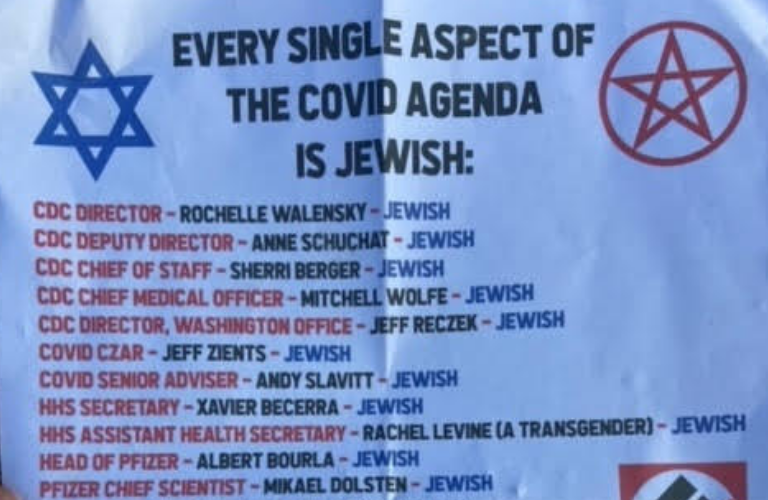
How have Holocaust survivors been impacted by this trend? And what role can survivors play in countering it?
“Unfortunately, the hundreds of thousands of survivors whom we have assisted over the years have watched with dismay as Holocaust denial and distortion have accelerated, especially online. One should never underestimate, though, the commitment and energy of Holocaust survivors, as CAM has learned through the survivors who have taken part in its campaign challenging Holocaust trivialization.”
“Even as the COVID-19 pandemic accelerated in 2020, the Claims Conference was fortunate enough to have dozens of Holocaust survivors — with dozens more waiting in the wings — eager to take a leading role in our digital campaign, ‘#NoDenyingIt.’ Through daily videos and several op-eds, Holocaust survivors directly appealed to Facebook, asking that the company de-platform Holocaust denial and distortion. Most mainstream social media companies have adopted standards prohibiting hate speech, and Facebook — and other online platforms — have been asked to recognize that Holocaust denial and distortion is nothing less than hate speech.”
“Last month, in recognition of International Holocaust Remembrance Day, the United Nations adopted a resolution confirming this precise point, which had been long recognized by other leading authorities such as the International Holocaust Remembrance Alliance (IHRA) and the U.S. Holocaust Memorial Museum (USHMM). With our ‘#NoDenyingIt’ campaign, after 75 days of direct video appeals from Holocaust survivors, Facebook announced in October 2020 that it would remove Holocaust denial and distortion from its platform and label it as the hate speech that it is.”
“More recently, many survivors took part in our nearly year-long initiative to raise awareness of the Holocaust and highlight the importance of Holocaust education. Survivors worldwide reflected on some of the most painful moments — the hateful words — that were directed at them before the mass deportations and killings. This legacy will live on at ItStartedWithWords.org, where we have posted the survivors’ first-hand testimonies describing how — long before the expulsions, deportations, ghettos, and camps — the Holocaust began with hate. These recollections will continue to serve educators, and those seeking to be educated, for years to come.”
“And we’ve just launched our latest social media campaign, dontbeabystander.org, to share the inspiring stories of the Holocaust rescuers who chose not to look away in the face of hatred, but instead to act to save a life (and sometimes many lives), even at risk of death.”
“Those who seek to invoke the Holocaust in the context of the pandemic would do well to watch these searing reflections from the women and men who lived through the horrors of the Nazi era. They personify what it means to be courageous.”
What other steps can be taken to fight Holocaust trivialization?
“We must tackle the misinformation and distortions about the Holocaust that, disturbingly, are spreading with increasing speed through social media. We must also effectively educate young people about the Holocaust. These are really two sides of the same coin: stopping Holocaust denial and distortion and replacing it with the facts.”
“We have our work cut out for us. The Holocaust is one of the most well-documented events in history. The Nazis, of course, kept meticulous records. Yet Claims Conference surveys reveal a disturbing lack of knowledge about many basic Holocaust facts. Nearly two-thirds of U.S. millennials and “Gen Z” members (ages 18-39) did not know that six million Jews were killed in the Holocaust. The same is true for more than half of those aged 18 and over in Canada, Austria, France and the United Kingdom. In fact, Facebook acknowledged that its decision to take action against Holocaust denial and distortion on its platforms was motivated in part by our finding that nearly one-quarter (23%) of young adults in the U.S. believe the Holocaust is a myth and did not happen, has been greatly exaggerated or were unsure. At the same time, large percentages have seen Holocaust denial or distortion posts online, including nearly half (49%) of U.S. young adults and nearly one-third of those in the U.K.”
“Tech companies have no obligation to open their online doors to this type of speech. In the United States, where most of the major social media companies are based, they are not regulated — but they are certainly free to self-regulate. They must devote the necessary resources to confront the scourge of Holocaust denial, distortion, and trivialization, and take down these hateful and incendiary posts.”
Specifically regarding Holocaust education, what can be done to teach the public at large about the uniqueness of the horrors of the Holocaust in history?
“Our surveys revealed some hopeful news on this front. In all of the countries we surveyed, very large majorities agreed that ‘Holocaust education is important — in part, to prevent something like the Holocaust from happening again.’ But even where Holocaust education is mandated, our survey results indicated that the level of Holocaust knowledge does not necessarily track with the requirement of Holocaust education in schools.”
“We are currently working to analyze and support those who are studying the data: we must learn what succeeds and what does not in Holocaust education. Young people often respond best to learning through social media (notwithstanding the many concerning issues with social media platforms as referenced above). There have been thoughtful and evocative online educational campaigns, including on Instagram and TikTok, that have reached millions of young viewers, and we believe it is incumbent upon all of us to dig deeper. Young people can be engaged, and our studies show that they want to be engaged. They are more determined than ever to question the past and examine the legacy of injustice. Let us make sure that the legacy of the Holocaust is part of that conversation.”
Founded in 1951 by representatives of 23 major international Jewish organizations, the Claims Conference negotiates for and disburses funds to individuals and organizations and seeks the return of Jewish property stolen during the Holocaust.
As a result of negotiations with the Claims Conference since 1952, the German government has paid more than $90 billion in indemnification to individuals for suffering and losses resulting from persecution by the Nazis.
In 2021, the Claims Conference distributed approximately $820 million in direct compensation to over 210,000 survivors in 83 countries and allocated approximately $650 million in grants to over 300 social service agencies worldwide that provide vital services for Holocaust survivors, such as homecare, food and medicine.
For more information on the Claims Conference, please visit: claimscon.org

